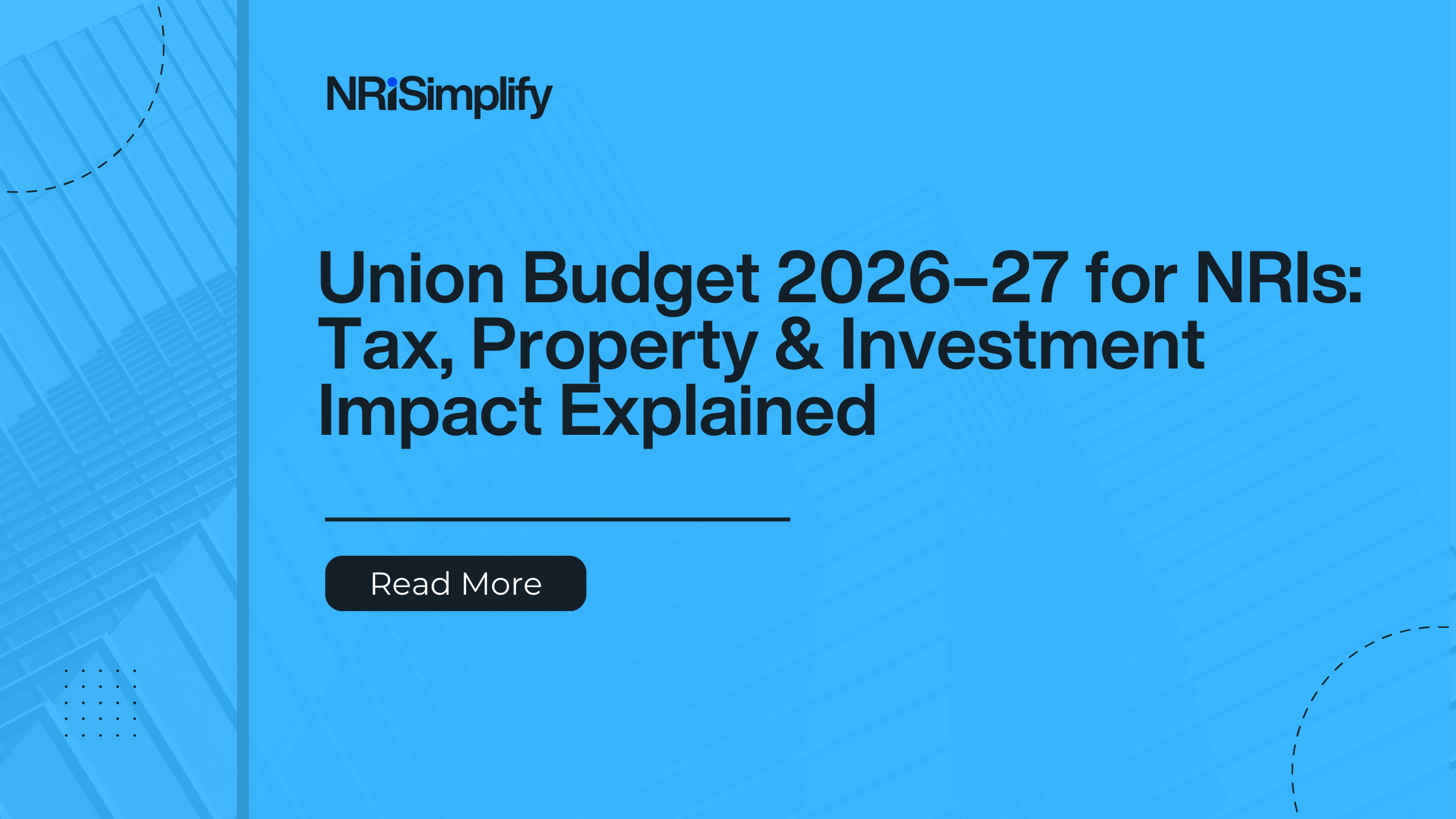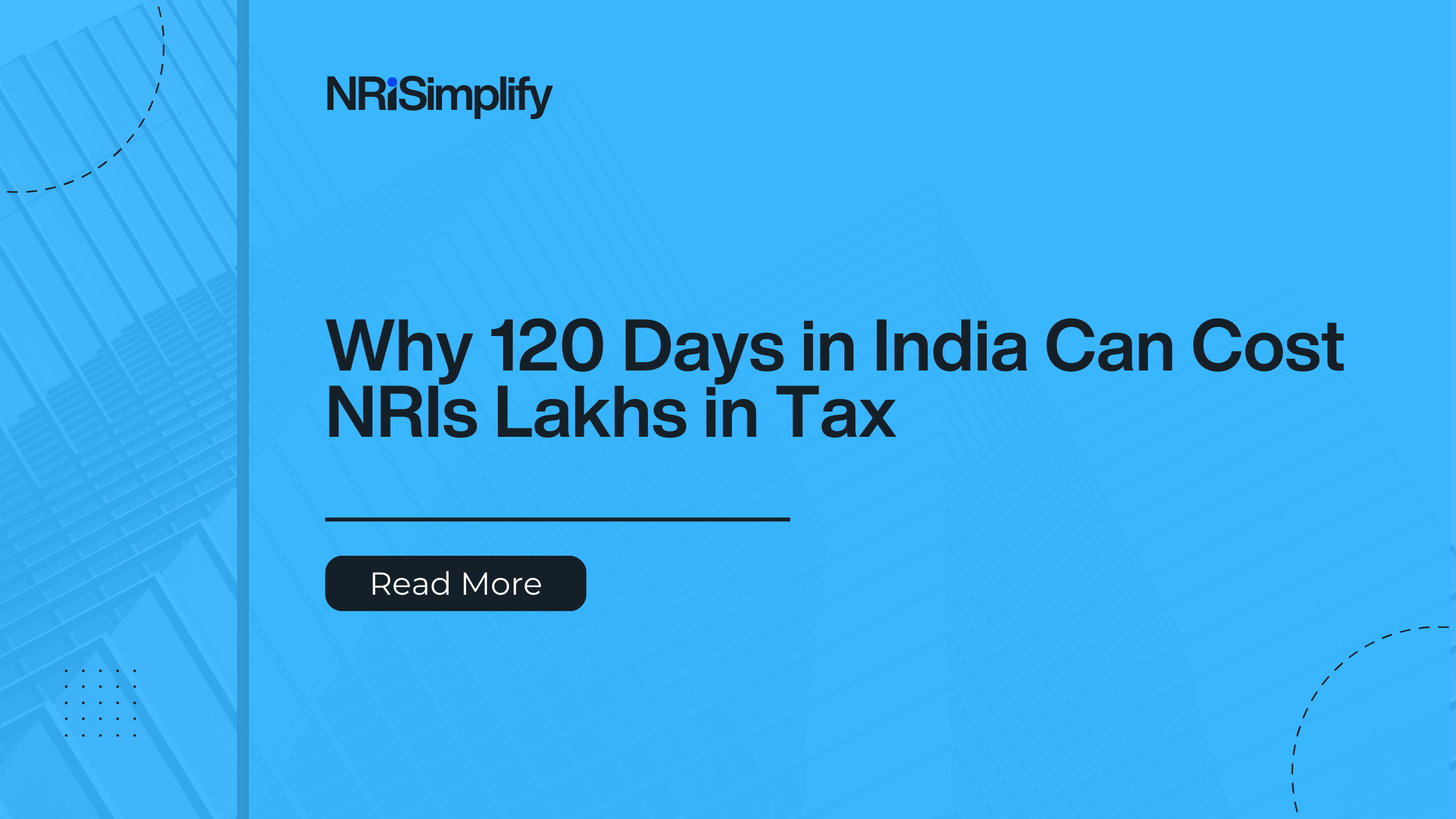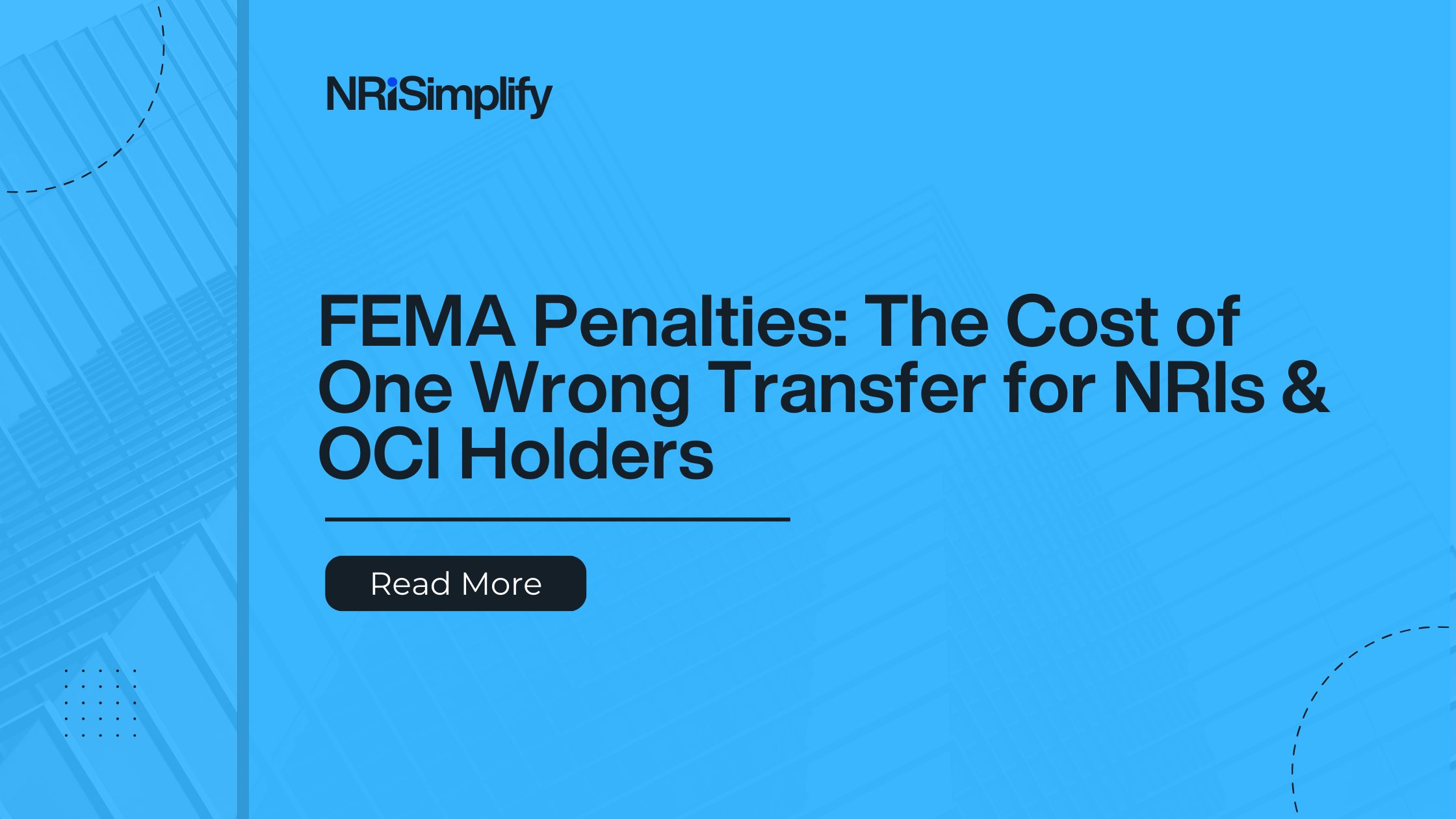For Non-Resident Indians (NRIs), understanding the importance of a Tax Residency Certificate (TRC) is crucial when dealing with taxes and investments in India. A Tax Residency Certificate serves as an official document that proves your tax residency status in your country of residence, whether it’s the USA, Canada, the UK, or another country. The TRC is essential for NRIs wishing to claim tax relief under the Double Taxation Avoidance Agreement (DTAA) between India and their country of residence.
Without a TRC, your income in India may be taxed at higher rates, leading to increased tax liabilities and delays in refunds. This comprehensive guide will explore the TRC, how it works for NRIs, and its impact on NRI taxation and claims under DTAA.
What is a Tax Residency Certificate (TRC)?
A Tax Residency Certificate (TRC) is an official document issued by the tax authorities of your country of residence, confirming that you are a tax resident there. For NRIs, obtaining a TRC is necessary to claim tax benefits and ensure compliance with Indian taxation laws. It is vital for NRIs who wish to avoid double taxation on income earned in India and for those who need to repatriate funds back to their home country.
While the TRC is not a substitute for dual citizenship, it plays a key role in ensuring that NRIs are taxed under the DTAA provisions and not at the higher Indian tax rates.
Who is Eligible for a TRC?
NRIs, Persons of Indian Origin (PIO), or Foreign Nationals who are tax residents of their respective countries can apply for a Tax Residency Certificate. The eligibility criteria are defined by the tax laws of your resident country. The TRC allows NRIs to avail themselves of the DTAA benefits, which prevent them from paying taxes twice on the same income.
How a TRC Helps NRIs Avoid Double Taxation
The TRC enables NRIs to claim tax relief under the DTAA. Here’s how:
- Lower TDS on Rental & Investment Income: Without a TRC, NRIs face up to 17.81% TDS deductions on rental income or capital gains. With a TRC, NRIs can claim lower TDS rates as per the applicable DTAA.
- Capital Gains Tax Reduction on Property Sales: If you’re an NRI selling property in India, the TRC helps reduce the capital gains tax and ensures you can claim foreign tax credits in your country of residence.
- Easier Repatriation of Sale Proceeds: Indian banks require a TRC to process repatriation of property sale proceeds (up to $1 million per year) from NRO accounts. A TRC simplifies this process.
- Avoid IRS Scrutiny in the US: If you’re a US-based NRI, providing a TRC is necessary to claim DTAA tax credits and avoid penalties from the IRS.
Step-by-Step Guide: How NRIs Can Obtain a Tax Residency Certificate (TRC)
Follow these steps to obtain a Tax Residency Certificate from your resident country’s tax authorities:
- Apply for TRC in Your Resident Country
- USA: Apply through the IRS using Form 8802.
- Canada: Apply through the Canada Revenue Agency (CRA) using Form NR73.
- UK: Apply through HMRC.
- Australia: Apply through the Australian Taxation Office (ATO).
- Documents Required:
- Proof of residency (bank statements, lease agreements, utility bills)
- Tax returns from the previous financial year
- Social Security Number (SSN) or Tax Identification Number (TIN)
- Submit TRC to Indian Authorities & File Form 10F
After receiving your TRC, submit it to the Indian Income Tax Department along with Form 10F (if required).
What is Form 10F?- Form 10F is an additional form required for NRIs without a PAN card to claim DTAA benefits. It must be submitted online via the Income Tax e-filing portal.
- Key Details in Form 10F:
- Full name & registered address
- PAN (if available)
- Tax Identification Number (TIN)
- TRC issuing country & validity period
Renewing a TRC: Keep Your DTAA Benefits Active
A TRC is valid for one financial year, and to continue enjoying the benefits of DTAA, it must be renewed annually. Be sure to submit updated documents to your country’s tax authorities for timely renewal.
TRC and Property Sales: Why NRIs Must Get It Before Selling Their Property
If you plan to sell property in India, having a TRC is crucial for avoiding:
- Higher TDS deductions (up to 17.81%)
- Delayed tax refunds due to incorrect tax deductions
- Challenges in repatriating sale funds abroad
Solution: Obtain a TRC in advance and consult NRI Simplify for expert assistance with TDS refunds and repatriation compliance.
Why Choose NRI Simplify?
At NRI Simplify, we specialize in NRI taxation, property sales, and DTAA compliance. Our experts help NRIs in the USA & Canada claim maximum tax benefits while managing property sales and investments in India.
- Expert DTAA & Tax Planning – Reduce your tax liabilities with strategic tax planning.
- Hassle-Free TRC & Form 10F Processing – Avoid delays in tax claims and ensure smooth processing.
- TDS Refund Assistance – Recover excess tax deducted from property sales.
- Smooth Repatriation Process – Transfer funds seamlessly to the USA or Canada.
NRI Simplify has helped thousands of NRIs navigate Indian tax laws, ensuring stress-free transactions and maximum tax savings.
Final Thoughts
For NRIs, obtaining a Tax Residency Certificate (TRC) is a vital step in minimizing tax deductions and ensuring tax compliance under DTAA. Whether you’re reducing TDS on rental income or saving on capital gains tax during property sales, a TRC helps ensure that your hard-earned money stays where it belongs—with you, not the tax authorities.
At NRI Simplify, we handle everything remotely, ensuring you don’t have to travel to India. Let’s simplify your tax & financial compliance today!
Frequently Asked Questions (FAQs)
Q1: What is tax residency in India for NRIs?
In India, tax residency is determined based on the number of days spent in the country. NRIs are considered non-resident if they stay in India for less than 182 days during a financial year. If they stay for more than 120 days and earn ₹15 lakh or more in India, their status may change, leading to global taxation.
Q2: Why is a Tax Residency Certificate (TRC) required in India?
A TRC is crucial for NRIs to claim tax benefits under DTAA, ensuring they avoid double taxation on their Indian income. Without a TRC, NRIs may face higher TDS and miss out on the tax credits available under DTAA.
Q3: What are the new tax residency rules for NRIs in India?
The Indian government has implemented stricter residency rules for NRIs. NRIs who stay for more than 120 days in a tax year may be classified as RNOR (Resident but Not Ordinary Resident), making them liable for taxation on foreign income. NRIs need to keep track of their stay to maintain their tax-exempt status.
Q4: How long is a Tax Residency Certificate (TRC) valid in India?
A TRC is valid for one financial year and needs to be renewed annually to continue benefiting from DTAA provisions. Ensure timely renewal to avoid missing out on tax reliefs.
Q5: How can NRIs maintain their NRI status in India?
To retain NRI status, individuals must:
- Limit their stay in India to less than 182 days in a financial year.
- If earning over ₹15 lakh in India, ensure their stay does not exceed 120 days in a tax year and less than 365 days in the last four years.






